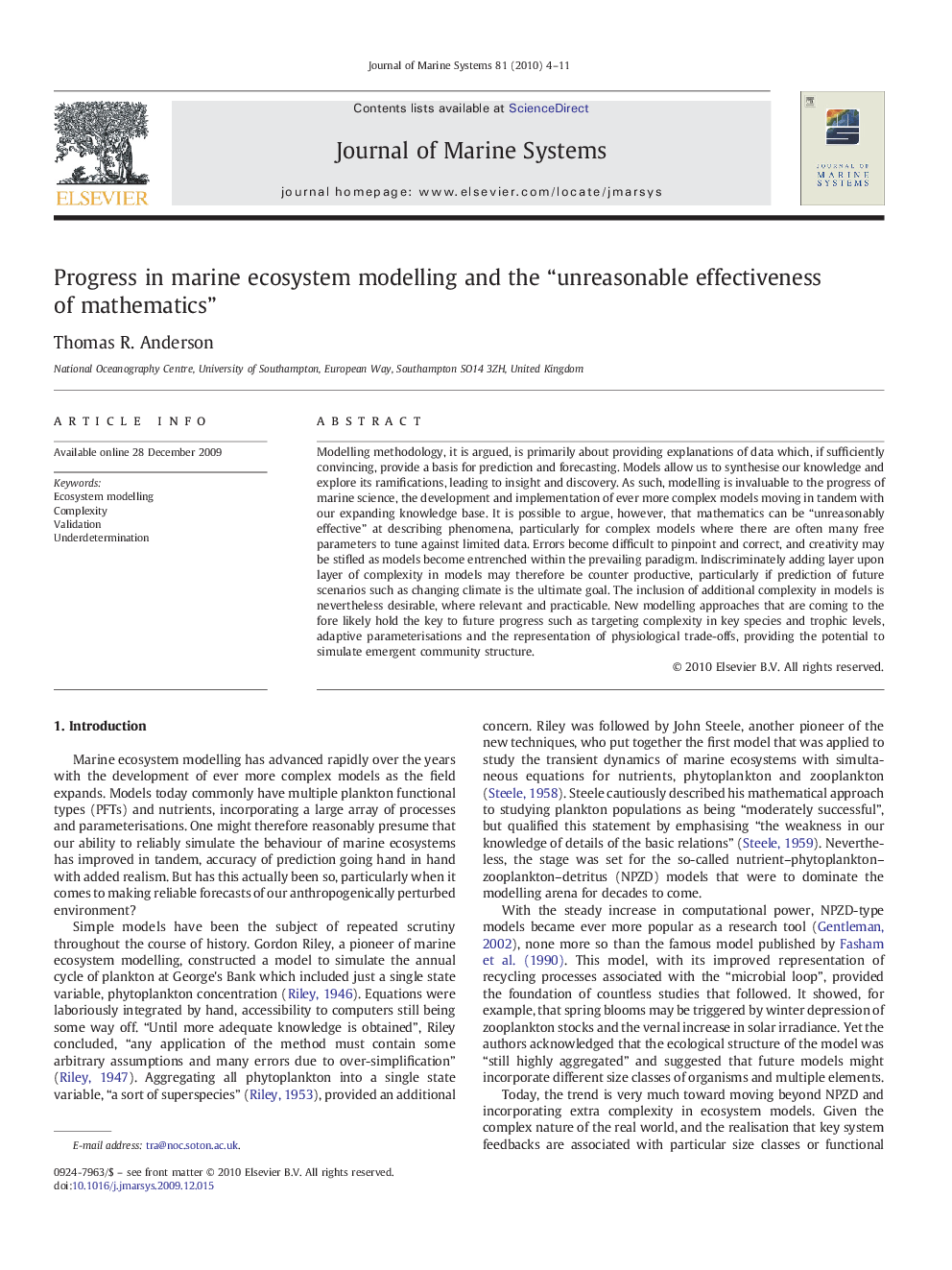| Article ID | Journal | Published Year | Pages | File Type |
|---|---|---|---|---|
| 4548576 | Journal of Marine Systems | 2010 | 8 Pages |
Abstract
Modelling methodology, it is argued, is primarily about providing explanations of data which, if sufficiently convincing, provide a basis for prediction and forecasting. Models allow us to synthesise our knowledge and explore its ramifications, leading to insight and discovery. As such, modelling is invaluable to the progress of marine science, the development and implementation of ever more complex models moving in tandem with our expanding knowledge base. It is possible to argue, however, that mathematics can be “unreasonably effective” at describing phenomena, particularly for complex models where there are often many free parameters to tune against limited data. Errors become difficult to pinpoint and correct, and creativity may be stifled as models become entrenched within the prevailing paradigm. Indiscriminately adding layer upon layer of complexity in models may therefore be counter productive, particularly if prediction of future scenarios such as changing climate is the ultimate goal. The inclusion of additional complexity in models is nevertheless desirable, where relevant and practicable. New modelling approaches that are coming to the fore likely hold the key to future progress such as targeting complexity in key species and trophic levels, adaptive parameterisations and the representation of physiological trade-offs, providing the potential to simulate emergent community structure.
Related Topics
Physical Sciences and Engineering
Earth and Planetary Sciences
Oceanography
Authors
Thomas R. Anderson,
